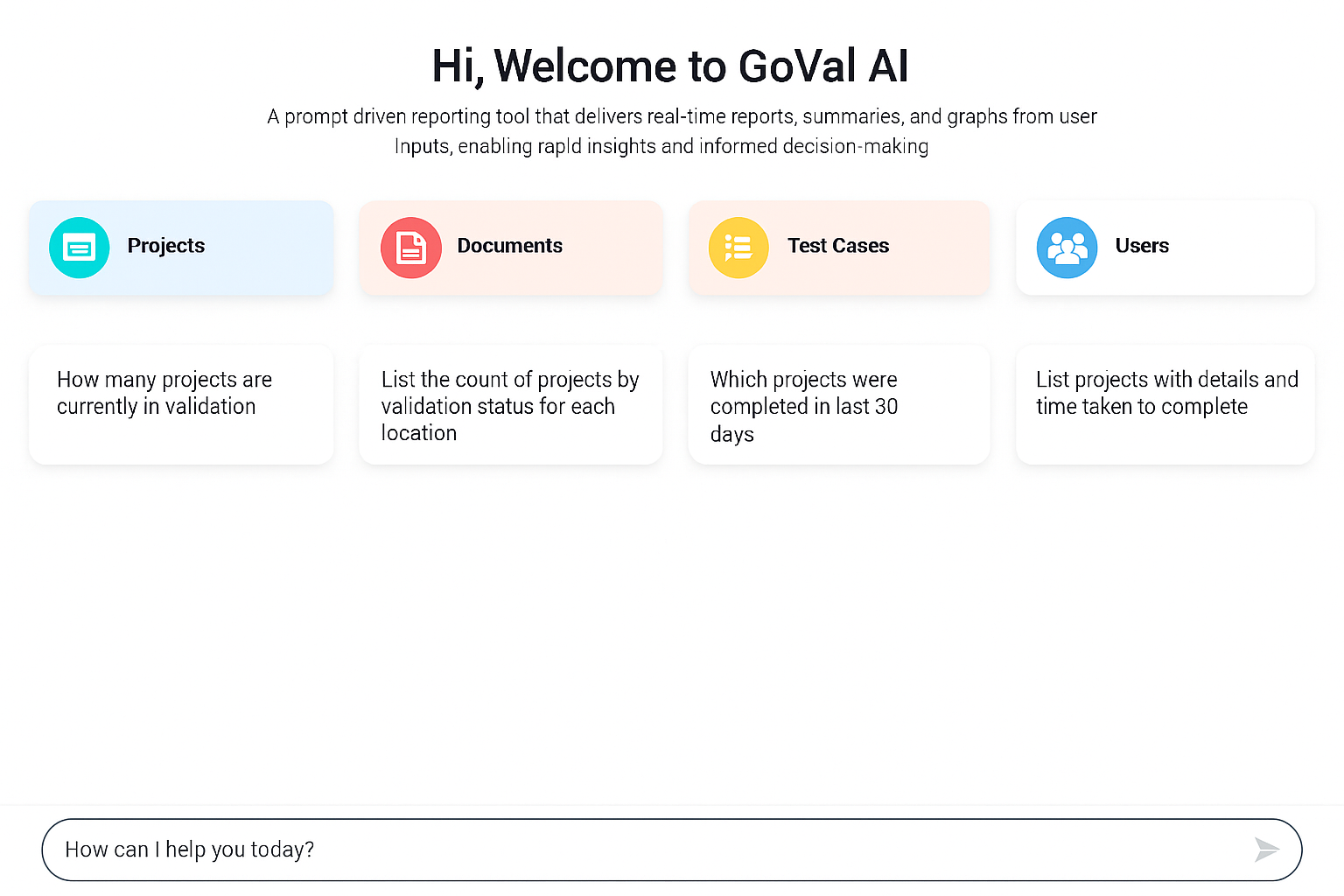Frequently Asked Questions (FAQ's) about GoVal AI
Which large language models (LLMs) does GoVal AI use?
GoVal AI is model-agnostic. We integrate with leading LLM APIs—including OpenAI (GPT-4/4o), Google Gemini, and Azure OpenAI (the same model family used by Microsoft Copilot). Customers can bring their own API keys, pin regions for data residency, and enforce no-training-on-customer-data by default. We can also add a customer-preferred provider on request.
Can we restrict GoVal AI to a single LLM vendor?
Yes. You can lock usage to one provider (e.g., Azure OpenAI only) and disable others per policy.
Does GoVal AI support on-prem or private cloud models?
Yes. We support models for private or on-prem deployments when data cannot leave your network.
How does GoVal choose which model to use?
We route by task (reasoning vs. extraction), document size, latency/cost targets, and your vendor policy.
Is customer data used to train models?
No. By default, prompts and outputs are not used to train third-party models. BYO credentials and provider settings are honored.
Where is our data processed and stored?
You can pin regions (e.g., EU/US) at the provider level. All records, e-signatures, and audit trails remain in the VLMS.
How does GoVal align with 21 CFR Part 11 and EU Annex 11?
GoVal provides electronic records & signatures, role-based access, versioning, and complete audit trails to help meet Part 11/Annex 11 expectations.
Can we get a full audit trail of every AI action?
Yes. Inputs, outputs, versions, and approver actions are logged and available for reporting.
What documents can GoVal AI read?
URS, FS/DS, SOPs, protocols (IQ/OQ/PQ), deviations/CAPA, supplier docs, and prior reports—common formats include PDF, DOCX, XLSX, and CSV.
Can GoVal AI generate test cases from URS/FS/DS?
Yes. It proposes risk-based, scenario-driven tests and highlights gaps or redundant steps.
How does GoVal reduce hallucinations?
We use retrieval-augmented generation (RAG) from approved documents, constraining AI output to governed templates for accuracy.
Does GoVal AI support multiple languages?
Yes. Specifications can be multilingual while UI language depends on deployment settings.
How does GoVal support the transition from CSV to CSA?
We emphasize intended use and risk, enabling adaptive testing and producing appropriately sized documentation with full traceability.
Do AI outputs require human approval?
Yes. Approval gates and e-signatures enforce mandatory review of AI-generated steps or tags before use.
Will GoVal AI assist with periodic reviews?
Yes. The system flags impacted items, suggests minimal re-validation, and schedules reminders for reviews.
Can GoVal AI integrate with Jira, ServiceNow, or SharePoint?
Yes. Integrations cover ticketing, content sources, and evidence storage. Custom connectors are also available.
What happens if a LLM provider is down or rate-limited?
We failover to approved backups per policy, respecting data residency requirements.

